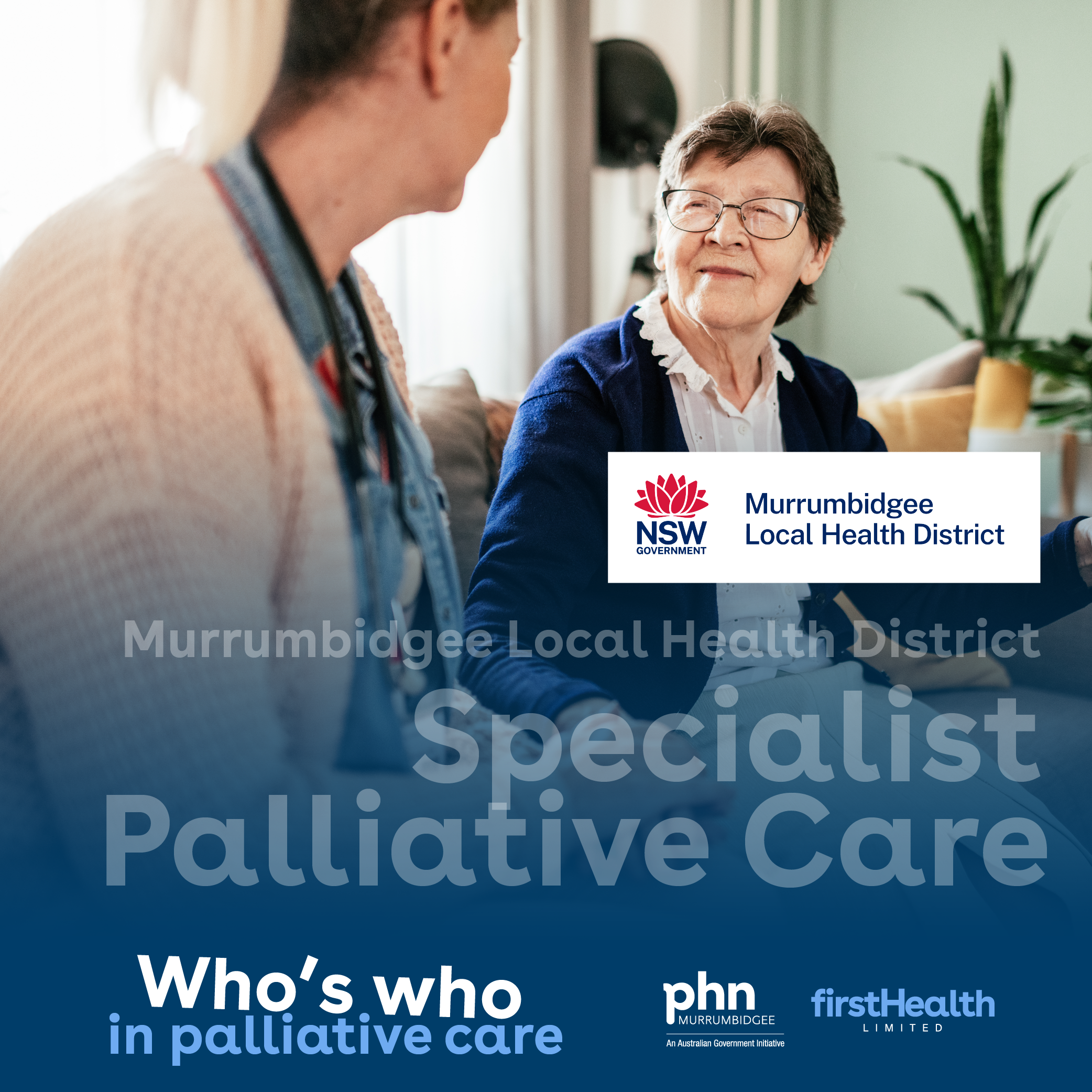Who’s who in palliative care
It takes a team of professionals and support systems to help someone with a life-limiting illness. So, who can help you with your palliative care needs?
Your local GP
Your local GP is usually the first person you see about your health concerns and often the central person of your care team when diagnosed with a life-limiting illness.
GPs can be a point of call for health information and referrals to services, both medically specialised and community or social support based.
Your GP is also a great resource to the other medical practitioners on your care team as they know your medical history, medical conditions, and prescriptions, as well as your values and wishes when it comes to health management and treatment.
Social support
Social support has historically played a role in the improvement of wellbeing for those receiving palliative care. Family and friends often play a crucial role in providing support that increases your quality of life, allows you to remain in your home, and minimise admissions to hospitals, hospices, or nursing homes, in conjunction with formal service supports.
MLHD Palliative Care Service
The MLHD Palliative Care Service is made up of specialist nurses and allied health clinicians including social workers, occupational therapists, speech pathologists, dietitians, and Aboriginal health support workers.
The service is here to assist you and your family to live as comfortably as possible with a life-limiting illness. The palliative care nurses work closely with you, your GP, other medical specialists, and health care providers to identify and assist you and your family to manage symptoms and problems which may be physical, emotional, spiritual, or social.
You can receive palliative care support whether you are at ome, in a residential care facility or in hospital.
To refer yourself, please contact Murrumbidgee Local Health District Central Intake on 1800 654 324.
Palliative Care Specialist Services for Aboriginal Families
Your Aboriginal Health Worker collaborates with the Specialist Palliative Care Team to ensure the service you receive is culturally safe and your current and future healthcare planning is culturally appropriate.
This can include supporting you and your family with information and referrals that help with important decision-making, legal and personal arrangements, advance care directives, wills and funeral arrangements.
To refer yourself to Palliative Care Specialist Services for Aboriginal Families, contact Murrumbidgee Local Health District Central Intake on 1800 654 324.
St Joseph’s Specialist Palliative Care Unit
St Joseph’s Specialist Palliative Care Unit provides private and public in-patient comprehensive palliative care management and treatment for symptoms of life-limiting illnesses. Patients may also be admitted to the unit for inpatient end of life care and respite.
Your GP, specialist medical practitioner, community palliative care nurse or local hospital can refer you to the Specialist Palliative Care Unit.
Calvary Palliative Care Enhancement Council
The Calvary Palliative Care Enhancement Council is a group of dedicated volunteers including health professionals and community members, with the sole purpose of enhancing the care patients and their families receive at St Joseph’s Specialist Palliative Care Unit through improved amenities and staff professional development.
This is achieved through the generous donations received by the Council.
Riverina Cancer Care Centre
The Riverina Cancer Care Centre provides public and private patients with a cancer diagnosis with radiation therapy and chemotherapy treatment.
The centre can also provide access to specialised services such as:
Cancer Care Coordinators
Oncology Social Workers
Dietitians
Speech Pathologists
Palliative Care Nurses
Support Groups
There is also a free local transport service for patients within the Wagga Wagga area to travel to the centre for treatment.
Your GP or treating specialist can refer you to the Riverina Cancer Care Centre.
The Forrest Centre Hospice
The Forrest Centre Hospice provides palliative care support in a residential setting for those who cannot be cared for in an acute hospital setting or at home in the community.
The hospice is more suited to those needing longer term care.
To be eligible for the hospice, you need to have been assessed for Permanent Residential Aged Care through My Aged Care (www.myagedcare.gov.au).
Cancer Council NSW
Cancer Council NSW provides various supports to those with a cancer diagnosis and their families.
Cancer Counselling
Transport
Accommodation
Pro Bono Program
Financial Assistance
Support for Cancer Survivors
Referral requirements differ for each support option, please access the Cancer Council NSW website for further details or attend the local office at 1/37 Tompson St, Wagga Wagga.
Ph (02) 6937 2600
E reception@nswcc.org.au
Carer Gateway
Carer Gateway is the national Commonwealth Respite and Carelink Centre for unpaid carers such as family members and friends of those living with a disability and/or life-limiting illness.
LiveBetter is the local provider for regional NSW including the Murrumbidgee community. If you or your family need to access general (planned) or emergency (unplanned) respite, contact Carer Gateway on 1800 422 737 and you will be connected to the appropriate contact at LiveBetter.
Carer Gateway also provides support for carers of loved ones with life-limiting illness such as:
In-person and online peer support groups
Tailored support packages
In-person and phone counselling
In-person and online self-guided coaching
Online skills courses
To access these supports, contact Carer Gateway on 1800 422 737 or visit www.carergateway.gov.au.




















